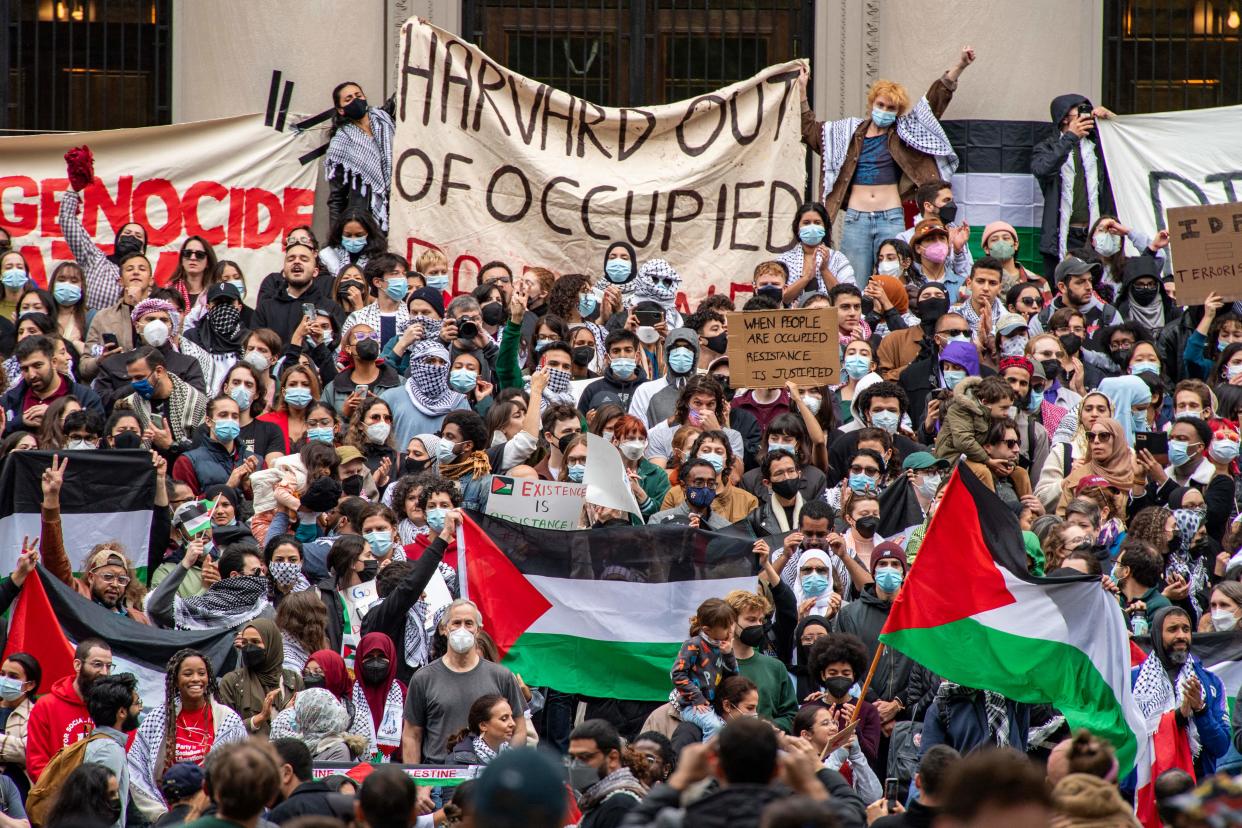As tensions spike over the Israel-Hamas war, should colleges rethink how they police free speech?

The presidents of three of the country’s most prestigious universities sparked a wave of criticism earlier this month after giving what many considered to be inadequate responses when questioned by members of Congress about their schools’ tolerance of antisemitic speech.
The presidents of Harvard, MIT and the University of Pennsylvania faced a barrage of pointed questions during an hours-long House committee hearing held in response to protests on America’s college campuses opposing Israel’s continued siege of Gaza.
The most noteworthy exchanges involved New York Republican Rep. Elise Stefanik, who grilled the administrators over whether “calling for the genocide of Jews” violated their universities’ speech policies. The presidents said they were committed to free speech and that context — such as whether the offensive comments were harassing specific people — would determine if there was a school violation.
The testimony prompted a fiery rebuke from Stefanik and several other committee members. Pennsylvania’s Democratic Gov. Josh Shapiro called the responses from Penn president Liz Magill “absolutely shameful.” A White House spokesman said it was “unbelievable” that the three administrators weren’t willing to unequivocally denounce “dangerous and revolting” attacks on Jewish people.
Magill resigned from her position a few days after the hearing. Harvard and MIT appear committed to allowing their leaders to keep their jobs, despite continuing calls for them to be fired.
Why there’s debate
The loudest reactions to the hearing have come from conservatives like Stefanik, who argue that any student or faculty member who promotes antisemitic rhetoric should face harsh punishments — as should any administrators who allow that kind of environment on their campuses.
But beneath that outcry, there has been a more nuanced debate over how the nation’s most influential private universities should balance free speech against their obligation to create a safe learning environment for their students.
A number of commentators from across the political spectrum argue that as angry as it may make some people, context really does matter when it comes to speech. They fear that universities will overreact to the criticism and impose strict new policies in an attempt to avoid offending anyone.
Many left-leaning pundits say this whole debate is a fake controversy based on a willful misrepresentation of common pro-Palestine phrases. They point out that though some interpret phrases like “intifada” and “from the river to the sea” as calls for genocide, they are more frequently invoked as a way to express general support for the Palestinian cause. The real goal of Republicans like Stefanik, these critics argue, is to suppress opposition to Israel.


